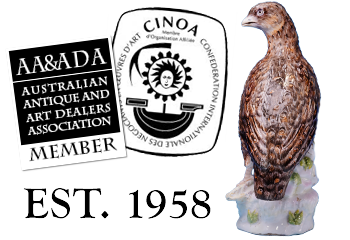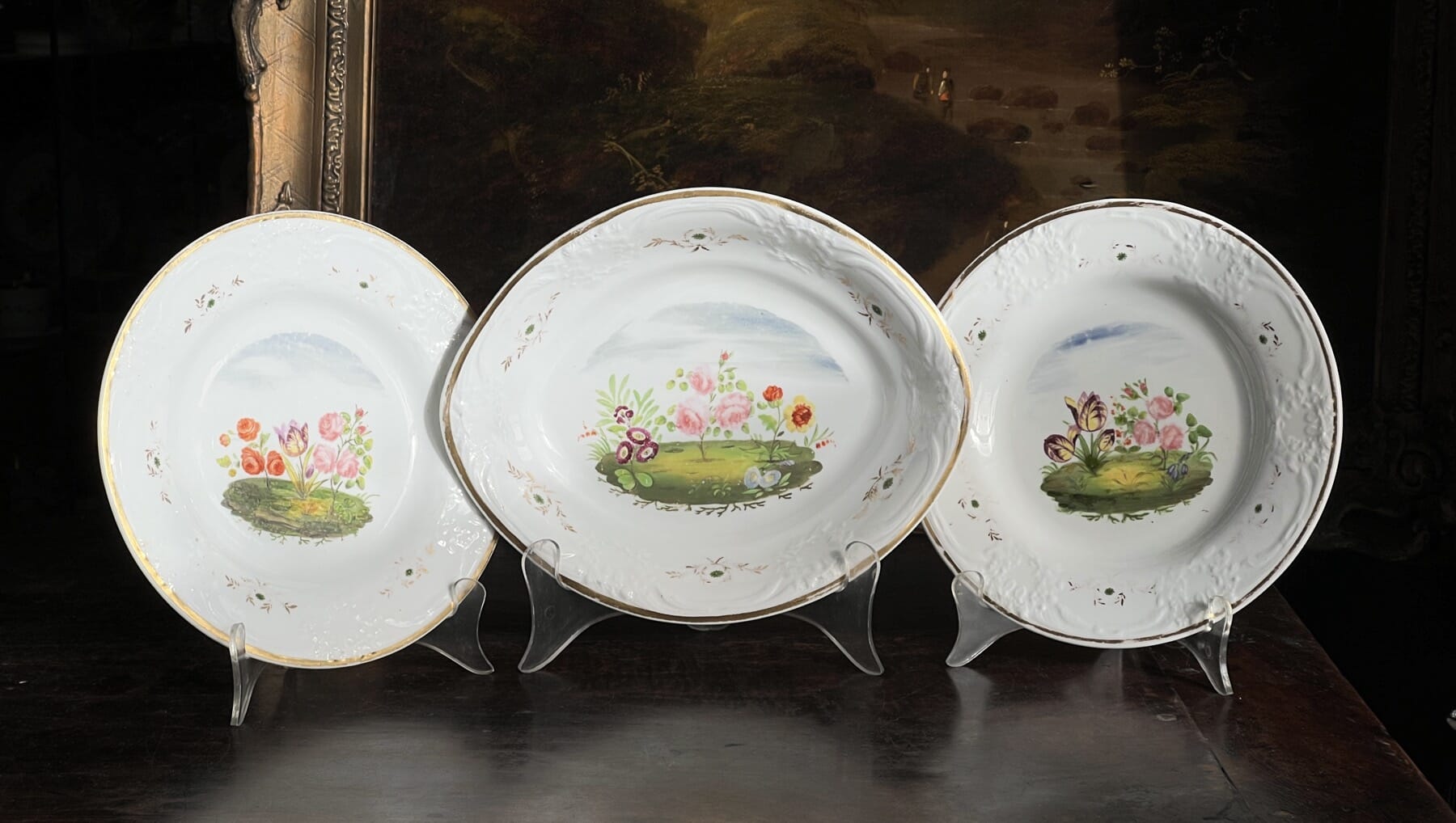
Ralph & James Clews
Porcelain & Earthenwares, Staffordshire, c.1815-34
The firm of Clews first appears in the Staffordshire records when they rent the Cobridge Pottery in 1817; earlier references suggest they worked elsewhere for a couple of years prior. The firm filed for bankruptcy in 1834. In 1835 an advert announces their works are available to rent immediately, and by 1837 all trace of the firm ceases.
PRODUCTS
They produced masses of white earthenware with underglaze blue prints, predominantly for the American market.
They produced tablewares & services, alongside tea wares.
There was also some fine quality Jasperware with blue ground & white sprigging, in the Wedgwood manner.
Also in earthenware were Lavender-ground wares with white sprigged flowers.
For some of the production period, they also made some interesting porcelain products. While the pottery is marked, the porcelain is not: however, by isolating a unique bow-shaped handle on their marked earthenwares and finding the same mould on porcelain, it has been possible to attribute a series of otherwise anonymous Staffordshire Porcelain wares to the firm.
The porcelain is a bright white good quality bone-china type, typical of most makers in the Potteries at the time. Translucency is excellent, with a granular look and a slight blueish tinge. The glaze is good for the most part, but tends to have a lot of small inclusions and bubbling; this is probably due to a kiln design flaw, as some of it is soot debris. Plates with this were still decorated and included in services, so the quality control was not as high as it was at the more premier manufacturers.
Marked Clews Jasperware Vase on Moorabool.com >>
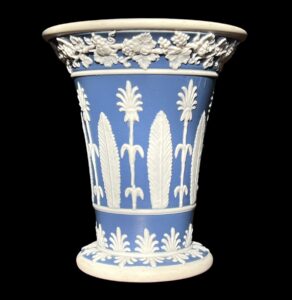

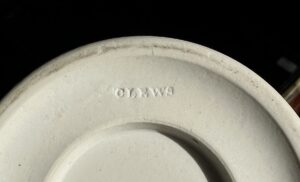
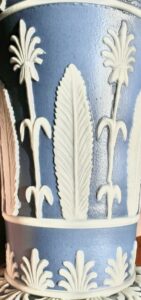
DECORATION
On-glaze enamels are the same as other factories, and the artists were of medium to good quality. An exception is a group that were obviously sold in the white, and decorated in studios. The Bradley Studio in London can be identified as one such outside decorator, and none of their products have pattern numbers.
Pattern numbers reach the 400’s, possibly the 800’s. They are medium sized, painted in red (usually) neatly rear the foot rim.
Painted patterns are all very reminiscent of those seen at Swansea, reflecting the current taste and demand for colourful flowers & fine gilt work that lingered after Swansea closed. As noted above, the London Decorators used Clews blanks after Swansea (and Nantgarw) closed, obviously accepting them as substitutes.
The scroll & wreath pattern, borrowed from Sevres and used at number of English factories at the time, is often seen.
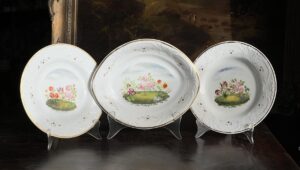
MARKS
Marks are apparently only found on the earthenware products.
Pattern Numbers Services had minimal pattern marking, as is often the case with smaller makers of the earlier 19th century, with only key pieces such as the shaped serving dishes in the part service pattern 169 illustrated above.
Patterns recorded at Moorabool Antiques, Australia:
63
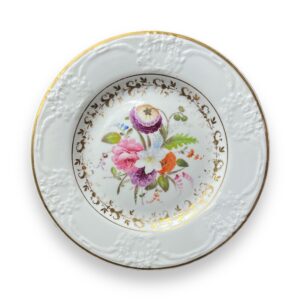
This plate came from a part-service at Moorabool Antiques, with a serving dish bearing the number ’63’.
Unphotographed & unverified.
164
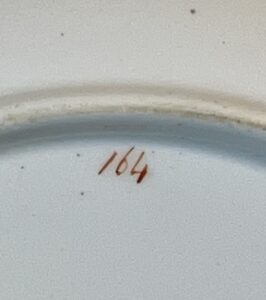
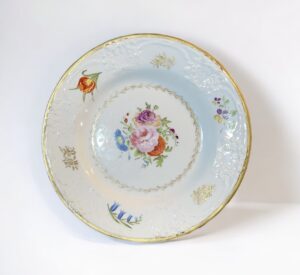
169
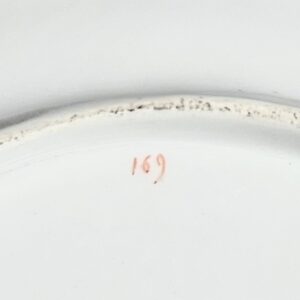
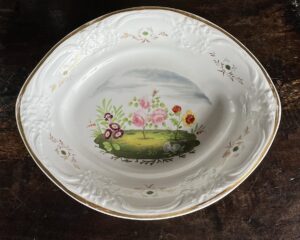
Possible Clews Patterns
The following two patterns, 70 + 197, have the same distinct moulding to the wreath. This differs from the examples above, and may be a different master-mould used at some stage, or may be another contemporary potter who also made both pottery & porcelain.
70 (earthenware)
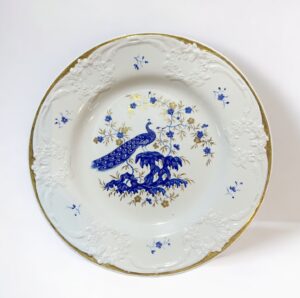
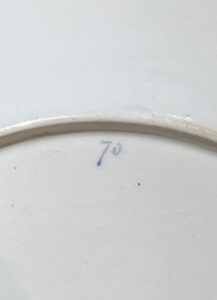
461
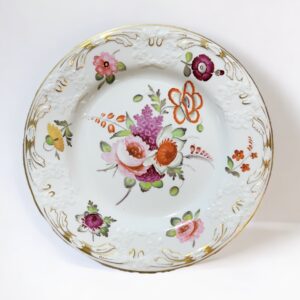
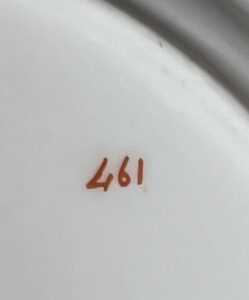
See all the Clews in stock at Moorabool Antiques >>
